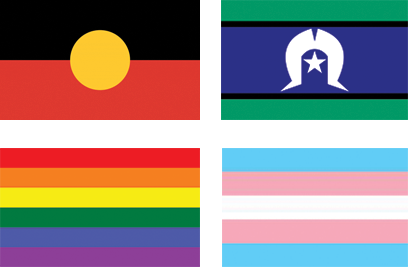Working with Aboriginal and Torres Strait Islander Clients
Aboriginal and Torres Strait Islander Family Violence
“Family violence” is used to describe the range of violence and abuse that Aboriginal and Torres Strait Islander people are subjected to and is inclusive of physical, emotional, psychological, sexual, social, spiritual, cultural, technological and economic abuses that may be perpetrated within a family. The term is inclusive of the broader impacts of violence on extended families, kinship networks and community relationships.
Aboriginal Family Violence at a Glance
- Aboriginal women are 34 times more likely to be hospitalised from family violence
- They are 11 times more likely to be killed as a result of violent assault
- Aboriginal women have also been identified as the most legally disadvantaged group in Australia
A complex issue
The causes of domestic and family violence do not derive from Aboriginal culture. Instead, family violence must be understood within the historical context of white settlement and colonisation. The resulting and continuing impacts of colonisation and settlement include:
- Cultural dispossession
- Intergenerational grief and trauma
- The breakdown of community kinship systems and Aboriginal law
- Loss of identity
- Stolen generations
- Loss of land
Aboriginal and Torres Strait Islander people live with multiple social and individual issues as a direct result of colonisation, and this includes the experience of family violence.
Providing Culturally-Sensitive Support
Providing the right support for Aboriginal and Torres Strait Islander people experiencing violence means:
- Understanding the causes and effects of violence in Aboriginal and Torres Strait Islander communities
- Understanding the past and current experiences of Aboriginal and Torres Strait Islander peoples as well as the needs of the person you are supporting
- Remembering that domestic and family violence is not always perpetrated by an intimate partner, but can also be perpetrated by other family members and the extended community
Providing culturally-sensitive support for an Aboriginal or Torres Strait Islander client may include:
- Thinking about your own white privilege and how that impacts your practice
- Consulting with, and taking direction from, Aboriginal and Torres Strait Islander workers
- Taking responsibility for engaging your client and ensuring you work in a way that helps them to feel comfortable
- Checking in about your client’s immediate and practical needs, and making sure they are responded to as a priority
- Considering your understanding of gender and power in relation to your client’s circumstances, and how that might fit in relation to kinship and community
- Determining what culture means for your client and their children, as well as who their people are and where their country is
- Working with your client to hear stories of their culture and heritage, and making the time to listen to these stories deeply and with respect



